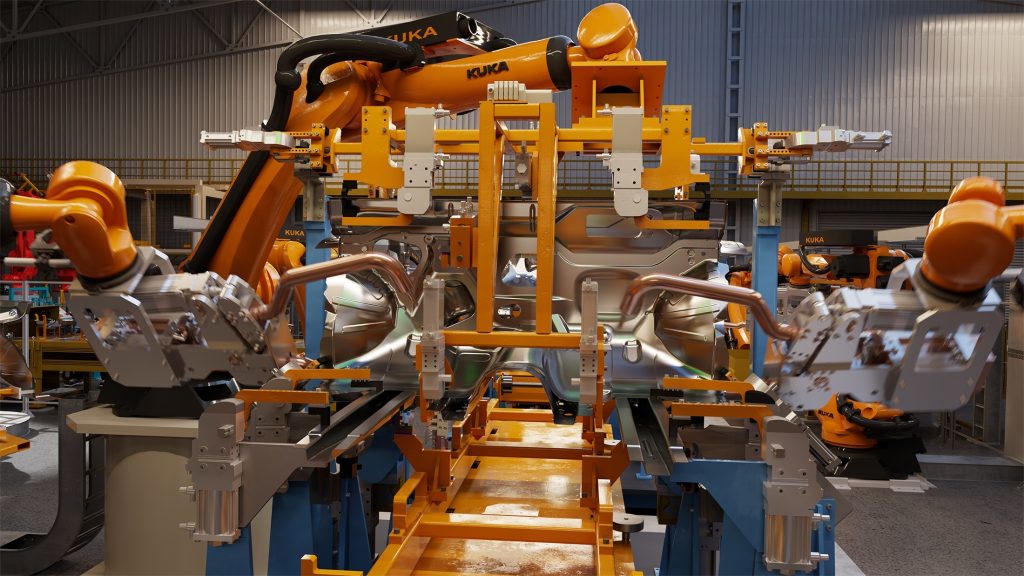By automating decision-making processes, ai provides strategic benefits to businesses. This introduction will explore how implementing ai technology can enhance decision-making, reduce costs, and improve efficiencies.
Organizations are constantly seeking ways to optimize their operations and remain competitive. With the rise of digital technology, companies can leverage ai automation to streamline processes and intelligently handle complex operations. Ai allows businesses to analyze vast amounts of data to gain insights and identify patterns, leading to more accurate decision-making.
By automating routine tasks, ai frees up time for employees to focus on high-value activities such as customer engagement and innovation. Furthermore, ai reduces the likelihood of human error, saving organizations both time and money. In this article, we will examine how ai can generate strategic benefits for organizations and enhance decision-making.

Credit: deloitte.wsj.com
The Evolution Of Decision-Making
Enhancing Decision-Making: The Strategic Benefits Of Ai Automation
Are you tired of making poor decisions that harm your business’s growth? One way to improve decision-making is with ai automation. Ai can enhance your decision-making strategy, enabling you to make data-driven choices based on patterns and insights that would be difficult to spot manually.
In this blog post, we will explore the evolution of decision-making and how ai automation can revolutionize it.
Traditional Approaches To Decision-Making
Traditional decision-making involves human judgement, intuition and experience to analyze information, find patterns, and foresee future trends. This approach is time-consuming, error-prone, and limited by our ability to analyze data. Here’s what you need to know about traditional approaches to decision-making:
- It is heavily influenced by subjectivity and experience.
- It may neglect some crucial data points.
- It may not have the capacity to analyze large volumes of data.
- It may lead to biased decision-making.
Introduction Of Ai Automation And Its Impact
Ai automation can transform the decision-making process by taking over mundane, repetitive tasks such as data collection and analysis, allowing teams to focus on making better decisions. Ai brings many benefits, including:
- The ability to process vast amounts of data accurately and quickly.
- Making unbiased decisions, avoiding human errors due to cognitive biases.
- Predicting future outcomes based on patterns and trends.
- Reducing time spent on data collection and analysis.
- Increasing overall productivity, allowing for better decisions.
Comparison Of Outcomes: Traditional Vs. Ai Automation-Driven Decision-Making
It’s essential to compare traditional approaches to decision-making with ai automation-driven ones to understand the benefits of ai for decision-making. Here are a few key points to consider:
Traditional Approaches
- May produce biased results based on individual levels of experience and judgment.
- May not have explored all available data sets due to selective memory or cognitive bias.
- Have a limited capacity for handling large amounts of data.
- Takes time to make decisions
Ai Automation-Driven Approaches
- Does not carry personal biases or selective memory biases.
- Analyzes vast amounts of data quickly.
- Makes predictions based on patterns and forecasts.
- Improves productivity with less time and resources spent on analysis.
Conversational ai has made it easy to interact with business data and extract insights in near real-time, enabling strategic decision-making that can take your business to the next level. As a result, more and more organizations are embracing ai automation to enhance their decision-making strategies and boost performance.
If you want to make data-driven decisions that can take your business to new heights, consider embracing ai automation in your decision-making processes. With ai as your strategic partner, you can explore vast sets of data, eliminate bias, and make informed decisions that are beneficial to your business.
Benefits Of Ai Automation-Driven Decision-Making
Enhancing Decision-Making: The Strategic Benefits Of Ai Automation
When it comes to business decision-making, time is of the essence, and accuracy can make or break an organization. Ai automation-driven decision-making has revolutionized the way organizations make strategic decisions, offering a range of benefits that can transform an organization’s operations.
In this blog post, we’ll dive into the strategic benefits of machine learning through ai automation and explore how it can enhance business decision-making.
Increased Speed And Accuracy In Decision-Making
One of the key benefits of ai automation-driven decision-making is that it significantly boosts speed while improving accuracy. Traditional procedures of decision-making often involve tedious manual data processing, which can be error-prone and time-consuming. Ai automation, on the other hand, can analyze vast amounts of data much faster and with greater accuracy than a human could.
As a result, organizations can make business decisions more quickly and with greater confidence, giving them a competitive edge over those that rely solely on human decision-making processes.
Here are some key points regarding the benefits of ai automation-driven speed and accuracy in decision-making:
- Ai automation makes it possible to analyze data much more quickly than humans can.
- Manual data processing can be error-prone, which can diminish accuracy. However, ai automation can analyze data more accurately.
- Ai automation enables faster, well-informed decisions, which, in turn, can boost an organization’s productivity and efficiency levels.
Minimizing Risks And Errors
Risk management and error reduction are crucial elements of business decision-making. Making poor decisions can lead to costly consequences, slow down a business’s progress, and even cause the failure of an organization. With ai automation, organizations can minimize such risks and prevent costly errors.
Here are some key points regarding minimizing risks and errors through the benefits of ai automation-driven decision-making:
- By analyzing vast amounts of data, ai automation can recognize patterns and trends that would be difficult for humans to identify. This enables it to make more informed decisions.
- Ai automation can reduce the risk of human error, thereby lowering the negative impact of such errors on an organization’s progress.
- By minimizing risks and errors, ai automation provides greater consistency in decision-making and helps to build trust and confidence within the organization.
Empowering The Workforce Through More Objective Decision-Making
Ai automation-driven decision-making enables organizations to move away from traditional hierarchical decision-making processes, which often neglect to consider opinions from team members at lower levels. By contrast, ai automation enables a more objective decision-making process that considers input from all sources.
Here are some key points regarding empowering the workforce through more objective decision-making with the benefits of ai automation:
- With ai automation, data takes center stage, which means that decisions are driven by data rather than subjective opinions.
- Using ai automation, every team member can have access to greater amounts of data, which could otherwise be limited to higher-level management.
- Ai automation can provide greater transparency in decision-making processes, thereby encouraging greater collaboration and staff empowerment.
The strategic benefits of ai automation-driven decision-making are clear. Ai automation can significantly enhance business decision-making processes, making it faster and more accurate while minimizing risks and errors. Furthermore, it empowers the workforce by moving away from traditional hierarchical decision-making processes and promoting objective decision-making that considers input from all sources.
By making the most of these strategic benefits, organizations can gain a competitive edge, optimize operations, and improve their overall bottom line.
Real-Life Use Cases Of Ai Automation In Decision-Making
Enhancing Decision-Making: The Strategic Benefits Of Ai Automation
Artificial intelligence (ai) is transforming the way businesses operate and make decisions. Ai automation tools are becoming increasingly common in various industries, from finance and healthcare to logistics and legal services. Ai automation is providing organizations with valuable insights, faster processing times, and improved accuracy, leading to better-informed decision-making.
Banking And Finance Industry
Ai automation is valuable in improving the efficiency and accuracy of financial decision-making processes. Here are a few ways the banking and finance industry is using ai automation:
- Fraud detection: Ai algorithms can efficiently and effectively identify fraudulent transactions, ultimately reducing financial losses.
- Credit scoring: Ai automation can analyze and score individual credit risks accurately, effectively, and with reduced bias.
- Wealth management: Ai automation provides precise predictions based on a customer’s past behavior, leading to better buying decisions.
- Risk assessment: Ai automation analyzes the risk level associated with investments and enables banking professionals to make informed decisions.
Healthcare Industry
Ai automation can provide objective, data-driven insights into patient care, leading to improved decision-making processes. Here are a few ways the healthcare industry is using ai automation:
- Diagnosis and treatment: Ai automation can provide healthcare professionals with valuable insights into patient data, leading to accurate diagnosis and timely treatment plans.
- Fraud detection: Ai algorithms can detect fraudulent healthcare insurance claims, reducing financial losses for insurers and ultimately lowering the cost of healthcare for customers.
- Clinical trials: Ai automation can analyze vast amounts of clinical data to discover new treatment options and develop more effective studies for clinical research.
Supply Chain And Logistics Management
Ai automation can streamline supply chain and logistics management processes, leading to significant cost savings and faster product delivery. Here are a few ways the supply chain and logistics industry is using ai automation:
- Inventory management: Ai automation can forecast future demand accurately, leading to better inventory management decisions.
- Route optimization: Ai automation can analyze shipping routes and suggest alternative transportation modes and routes.
- Warehouse management: Ai automation ensures optimal use of warehouse space, leading to more efficient storage and delivery of goods.
Legal Services Industry
Ai automation can help legal professionals to analyze complex legal documents and streamline legal decision-making processes, leading to faster and more accurate legal decisions. Here are a few ways the legal services industry is using ai automation:
- Contract analysis: Ai automation can analyze contracts, identify critical clauses, and extract important data to enhance the contract’s negotiation process.
- Legal research: Ai automation can save legal professionals valuable time by analyzing vast amounts of legal data and summarizing key findings.
- Due diligence: Ai automation can provide a comprehensive analysis of parties involved in legal processes, leading to more informed and accurate decisions.
Ai automation is proving to be valuable in enhancing decision-making processes in various industries. The benefits of ai automation include improved accuracy, faster processing times, and valuable insights. As ai automation tools continue to evolve, organizations of all industries and sizes will continue to realize strategic benefits in their decision-making processes.
Frequently Asked Questions On Enhancing Decision-Making: The Strategic Benefits Of Ai Automation
How Does Ai Automation Help With Decision-Making?
Ai automation helps decision-making by processing large data sets and providing insights and recommendations.
What Are The Benefits Of Implementing Ai Automation?
Implementing ai automation can streamline operations, increase efficiency, reduce costs, and improve decision-making.
Can Ai Automation Replace Human Decision-Making Entirely?
Ai automation can assist in decision-making, but it cannot replace human intuition and experience in making complex decisions.
Conclusion
As we come to the end of our discussion on the strategic benefits of ai automation, we realize that the power of artificial intelligence in enhancing decision-making cannot be underestimated. By automating repetitive tasks, improving accuracy and efficiency, and providing valuable insights, ai technology enables better decision-making and empowers businesses to stay ahead of the competition.
The use of ai automation is beneficial for almost every type of industry, ranging from healthcare to finance to e-commerce. However, it is imperative that companies understand the potential risks associated with the implementation of ai such as bias and privacy concerns.
To reap the full benefits of ai automation, businesses must also take into account ethical considerations and ensure ai is used in a responsible and transparent manner. In short, ai automation isn’t just a buzzword – it’s a valuable tool for companies looking to enhance their decision-making and drive growth in the highly competitive digital landscape.

